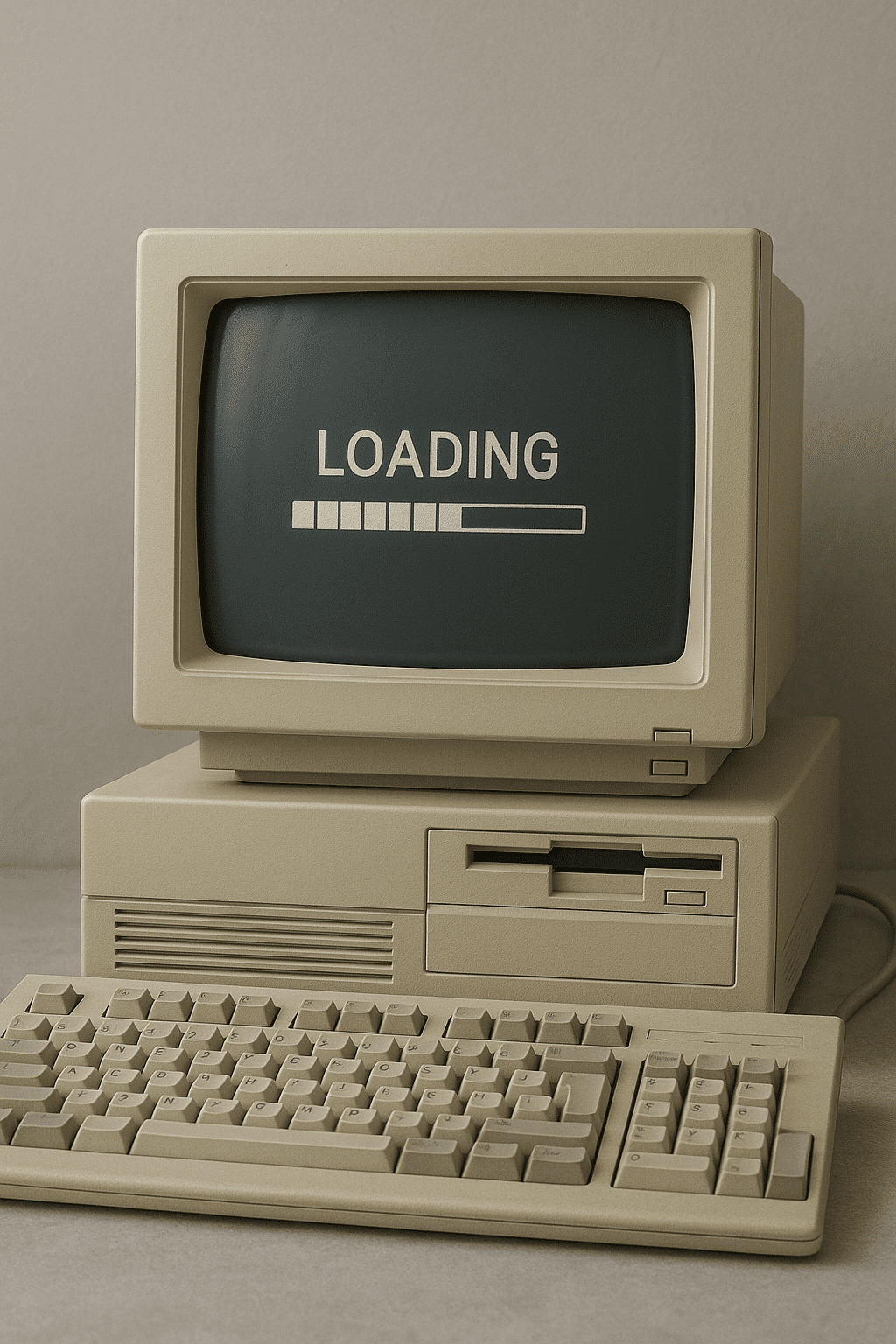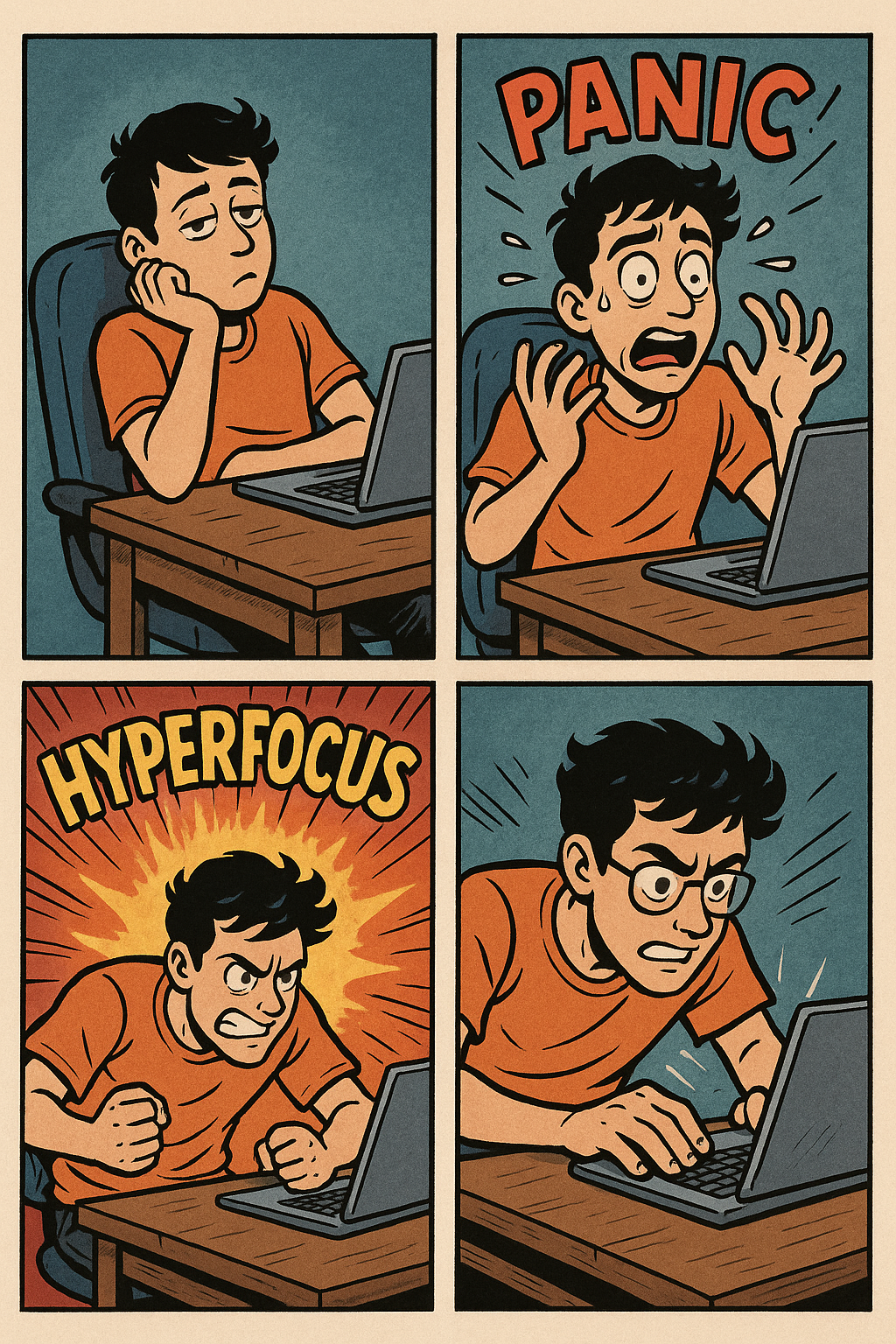Here’s What It Really Is (And How I Cope)
That Time I Lost My Phone… While Holding It
We’ve all had those moments where we walk into a room and immediately forget why. But for me, that’s not just an occasional blip, it’s a full-blown lifestyle.
Once upon a youthful time, I could hold a conversation, make dinner, remember my PIN, and write a shopping list simultaneously. But ever since I hit my mid-forties, my brain decided to clock out early. No notice. No polite resignation letter. Just a slow, misty fade into what I can only describe as cotton wool chaos.
Brain Fog: It’s Not You, It’s Neurology (And Hormones)
Here’s the truth: brain fog isn’t just “forgetfulness.” It’s an actual neurological experience. It can stem from hormonal changes (hello, perimenopause), nutrient deficiencies, stress overload, sleep deprivation, and yes, neurodivergence.
Studies show that declining oestrogen levels in women affect neurotransmitters like dopamine and serotonin—your brain’s own version of Wi-Fi. When the signal gets patchy, so does your focus, memory, and clarity.
The Embarrassment Tax: Why Brain Fog Feels Like Failure
Now here’s the kicker (I hate that phrase, but in this instance I believe it’s apt) It’s not just the fog that stings. It’s the shame that follows.

I forget the point halfway through a story, mix up words when I’m nervous, and sometimes just… blank. Not because I didn’t care. Not because I wasn’t paying attention. But because my brain decided to go offline.
The tragedy of it? You look flaky. Or worse – Stupid!. I’ve had strangers give me that polite smile that says, “She’s not quite all there, bless her.” And that’s the part that bites the most.
You’re Not Broken. You’re Processing Differently.
Imagine your brain is an old computer trying to run modern software. You click a tab and the spinning wheel appears. You try to open another one, then crash. But it’s not the computer’s fault. It’s not faulty. It’s just overwhelmed.
The same applies to our brains. It’s not that we’re lazy. It’s that we’re managing 47 tabs with only two of them actually working.
Real Talk: Here’s What Helps Me Cope
Let’s talk solutions, shall we? Not magic fixes, but genuine ways I manage the madness.
1. I Time-Block Like a Teacher With a Bell
I use colour-coded blocks in my diary. Blue is for focused work, yellow is admin, and pink is for pretending to be functional in public. If I don’t schedule it, it doesn’t happen.
2. I Speak Kindly to Myself (Even When I Sound Silly)
If I forget my words, I don’t apologise anymore. I pause, smile, and continue. Most people forget their words too, they just don’t panic about it.
3. I Break Tasks Into Ridiculously Small Steps
“Clean the kitchen” becomes “Clear the table,” “Wipe surfaces,” and “Pretend the floor doesn’t exist for now.” The smaller the task, the more doable it feels.
4. I Use Voice Notes for Everything
Honestly, I narrate my life like I’m David Attenborough. “Opening the fridge… looking for hummus… realising the hummus is gone… mild despair sets in.”
5. I’ve Stopped Hiding It
I tell people up front. “I’m a bit foggy today, bear with me.” It sets expectations low and takes the pressure off. You’d be amazed how compassionate people can be when you lead with honesty.
6. I Prioritise Rest Like a Ritual
Brain fog feeds off exhaustion. So naps, early nights, and guilt-free lie-ins are part of the treatment plan. Rest isn’t laziness, it’s medicine.
7. I Keep My Circle Soft and Supportive
You need people around you who don’t mock the muddle. Who laugh with you, not at you. Who know your worth even when your brain is playing hide and seek.
Let’s Stop Calling It Lazy
Here’s a radical thought: what if we started trusting our experience? What if we believed ourselves instead of performing for people who’ll never understand what it’s like to be smart, capable, and still forget why you walked into the kitchen?

Brain fog is not a character flaw. It’s a signal. A call to slow down, seek help, nourish your nervous system, and build a life that fits your actual pace.
So to anyone who feels broken, flaky, or ‘not enough’: you are not the problem. You are a person navigating a foggy path and doing it with far more grace than you know.
*This image is AI-generated with prompts made by me and serve no educational purpose, it is only used to highlight certain aspects of this article.




